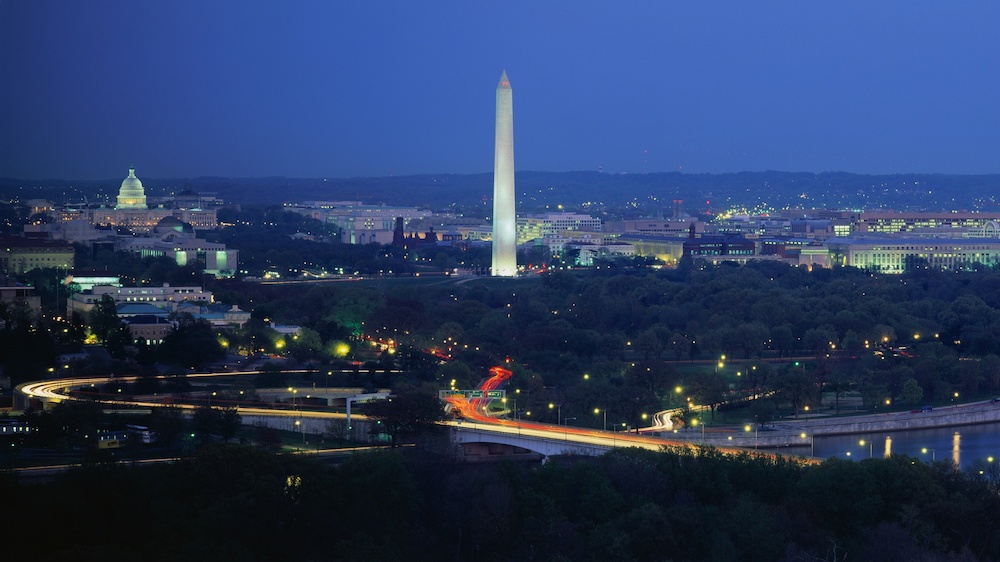If you’re interested in sharing your opinion on any cultural, political or personal topic, create an account here and check out our how-to post to learn more.
____
Over the past year, we have borne witness, in our home of Washington, D.C. and across the nation, to remarkable engagement in American democracy in the face of great odds. As we celebrate Black History Month, it’s an especially good time to pause and reflect on the history Black people are making in our democracy right now.
Last summer, the seeds of the Movement for Black Lives sown by Black organizers bloomed into unprecedented uprisings for racial justice. Throughout the fall, Black communities mobilized to eject from office the most racist, xenophobic, misogynist president in recent memory. Between November and January, Black organizers in Georgia pushed through exhaustion to deliver the Senate to Democrats. And just last month, the first Black vice president and the first Black senator from Georgia both assumed their respective roles in Washington, D.C.
But even as we celebrate these remarkable feats, including this transformation of the landscape in our nation’s capital, we must acknowledge another, more dismal reality of Washington, D.C.: to this day, the nearly 710,000 Americans who call our nation’s capital home are almost completely disenfranchised within it.
That’s because the District of Columbia is not a state, and its people therefore do not enjoy the full promises of democracy. For more than 200 years, we have been denied voting representation in the Congress our taxes fund and our residents maintain, the same Congress that has veto power over all our local lawmaking and budget. Our city houses a government that purports to be “of, by, and for the people,” yet it is not fully for us.
This anti-democratic reality is not an accident. It is an intentional, racist artifact of a system designed to maintain white supremacy and squelch any semblance of Black political power in the heart of our government.
Long home to a robust community of free Black people, Washington, D.C. was the first jurisdiction in the United States to abolish slavery — nine months before Lincoln’s “Emancipation Proclamation” — and by the turn of the century, D.C. had a higher percentage of Black residents than any other U.S. city. In the early days of Reconstruction, newly-enfranchised Black men elected Black leaders to every level of D.C.’s local government, only to have white politicians in Congress eliminate local democracy altogether, replacing the democratically-elected D.C. government with an all-white board of appointed commissioners. In defending the move, Alabama Senator John Tyler Morgan claimed Congress had “to burn down the barn to get rid of the rats … the rats being the negro population and the barn being the government of the District of Columbia.”
Today, more than 150 years later, conservative lawmakers continue to stand in the way of democracy for D.C. residents. While their language is more subtle, their motivation remains the same: to thwart and erase Black political power. And as a city made up mostly of people of color — the majority of them Black — with a rich tradition of organizing and Black elected leadership, Washington D.C. is as threatening to the white power structure as ever.
But, as we were made painfully aware last summer during the uprisings for Black lives, when Trump used tear gas, rubber bullets, and flash bangs to clear a multiracial crowd of protestors from Lafayette Square, and again on January 6, when the mayor was unable to call up the National Guard to protect our city in the face of violent white rioters during the Capitol insurrection, strong organizing and elected leadership can only get us so far. If we want to approximate democracy and achieve economic opportunity and racial justice in Washington, D.C. must become the 51st state.
Thanks to Black leadership of a robust movement for statehood, last year, for the first time ever, a bill for D.C. statehood passed a full chamber of Congress. Only a few weeks into the 117th Congress, both the House and the Senate have re-introduced bills for D.C. statehood — H.R.51 and S.51, respectively — and a majority of members of Congress support sending the legislation to President Biden’s desk.
But D.C. statehood is not a foregone conclusion. The forces of white supremacy are as well-versed in democratic exclusion as ever, even as resistance by Black communities has forced them to adjust their tactics. Today, they are again mobilizing one of their favorite tools of racist obstruction — the filibuster — to block D.C. statehood.
Black Washingtonians have fought for centuries for full democracy in D.C. Now, it is Congress’ turn. Democrats in the Senate must heed the mandate that Black and brown voters across the country, and especially in Georgia, created when they gave them the majority: abolish the filibuster and pass D.C. statehood now.
Our city’s history is Black history — and D.C. statehood is its future.
____
Ericka Taylor is a writer, book critic, and popular educator at Take on Wall Street. She lives in D.C.’s Capitol Hill neighborhood.
Laura Williamson is a senior policy analyst at Demos, a progressive think tank, and calls Mt Pleasant, D.C. home.
